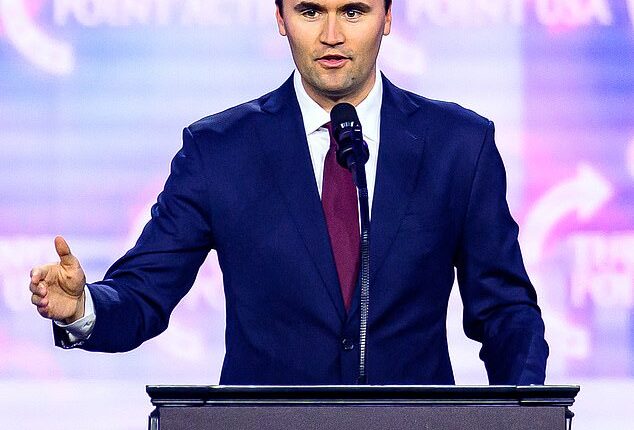There are many things to navigate in the world of work, and the minefield of politics is just another – particularly during the interview stage.
After dozens of people claim to have been fired or suspended after commenting on Charlie Kirk’s death, navigating the murky waters of politics in the workplace is becoming increasingly difficult.
The right-wing political activist, 31, was assassinated on September 10 at Utah Valley University.
Since his death, reports of people either being suspended or fired after celebrating – or mourning – Kirk’s death have made headlines around the world.
Celebrities on both sides of the political debate haven’t been been left unscathed either, with dozens of influencers and Hollywood stars facing backlash from fuming fans for publicly sharing their views.
The slew of firings begs the question: is it ever appropriate to discuss politics in the workplace? Well, now human resource professionals have shared their opinions.
Dr. Sheree Bryant Sekou, a leadership consultant, coach, and business etiquette professional strongly recommended against bringing up political beliefs – especially early on.
‘I do not recommend discussing politics during interviews,’ she exclusively told the Daily Mail.

Right-wing political activist Charlie Kirk, 31, was assassinated on September 10 at Utah Valley University
‘One of the most important goals of an interview is to secure the job. I recommend staying away from politics, and any other potentially divisive topics, and focus on the goal,’ she shared.
Sekou pointed out that while interviewing for a job, you have limited time to leave an impression.
‘Use your time to share specific details related to your professional accomplishments and why your unique skills and abilities make you a great fit for the role,’ she urged.
Abbe Depretis, an associate teaching Professor of Business Communication at Carnegie Mellon University’s Tepper School of Business, agreed, urging applicants to keep their personal beliefs to themselves.
‘Political beliefs and affiliations are not federally protected under the Constitution or the Equal Employment Opportunity legislation, although some states do have a few protections for political activities,’ she pointed out.
Depretis said keeping political beliefs to yourself – whether it be at an interview, in discussion with colleagues or on social media – is the best path.
The expert added it doesn’t matter what side of politics you are on.
‘It doesn’t matter what those beliefs are,’ she added. ‘We’ve seen people on both sides of the aisle being fired or disciplined for comments or social media posts that supported the Charlottesville protests, spoke out against Charlie Kirk after his murder, or showed their participation in the January 6 protests.’

The slew of firings begs the question: is it ever appropriate to discuss politics in the workplace? Well, now human resource professionals have shared their opinions (stock image)
Depretis also spoke on whether or not workplaces should be looking at employees’ social media, pointing out it serves as another step in the vetting process of a job candidate.
‘Depending on the company, HR may check an interviewee’s social media presence to see if they could be a liability,’ she admitted.
‘If they are concerned about an employer finding political material, they should make their accounts private and refrain from posting anything political that could be a deal breaker for a potential employer,’ Depretis advised.
Tracey Beveridge, HR Director at Personnel Check, said although she advises prospective employees from talking about their political views in a potential workplace, there can be some examples of when it could be appropriate.
Beveridge said an exception is during an interview if the company and its employers are publicly supportive of a particular party or campaign, or the role is specifically about political engagement.
‘[If it’s something you genuinely also back] you could build an alliance and strengthen your position within the bank of potential candidates,’ she said.
‘Airing political views results in “treading on thin ice,” and it could be the thing to stop your application process in its tracks,’ the HR director said. ‘In most situations, it’s best to focus on your skills and experience, rather than political viewpoints.’









